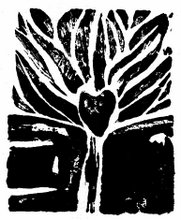
Walter Olds 89, died of cancer on August 17, 2007, at his home in Berkeley, where he had lived for the past 54 years. Walter was born on a farm in Iowa in 1918 and learned carpentry from his grandfather, with whom he lived while attending high school. Walter was a quiet and private person, who designed and built the leaded glass and most of the furniture in the family home. He graduated from Iowa State University in 1942 with degrees in architecture and civil engineering. While waiting in the university library for his girlfriend and future wife of 65 years, Betty Milne, Walter discovered a magazine about the work of the architect, Frank Lloyd Wright. Inspired to devote his career to the study and practice of architecture, in 1947 he was accepted by Mr. Wright as an apprentice at the Taliesin Fellowship. Later Walter would serve as the senior apprentice and supervisor for the Wright-designed V.C. Morris building on Maiden Lane in San Francisco, the Walker residence in Carmel and the Buehler residence in Orinda. After leaving Taliesin, he was hired as the first employee of the architectural firm of Anshen and Allen. He later joined the firm Skidmore, Owings and Merrill, where he spent the next 40 years of his career. His first few years at SOM were spent in Okinawa working on the reconstruction after World War II. Retiring from SOM in 1990, Walter continued to practice architecture. In 1994, he supervised the restoration of the Wright-designed Buehler home, which had been partially destroyed by fire, and had recently designed a home for a longtime client in Kenwood. Walter Olds was an avid hiker and with his wife, traveled extensively around the world, often with the Sierra Club. He is survived by his wife, Betty Olds, a Berkeley Council Member; sons, Lore and Colby (Deborah); daughter, Marcia, and four grandchildren, Mayacamas, Skyla, Olivia and Samuel. There will be a private family service. In lieu of flowers, memorial donations may be made to The Nature Conservancy, 4245 N. Fairfax Drive, Suite 100, Arlington, VA 22203.







